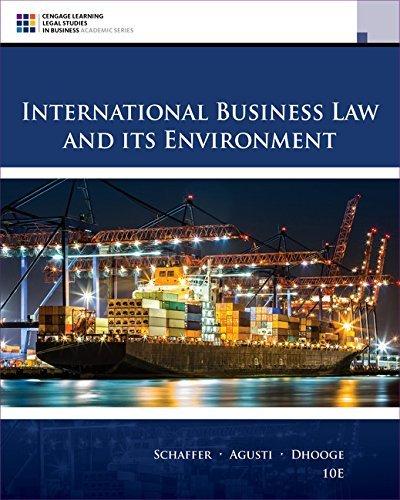Maquiladoras have been subject to much criticism. Critics contend that the industry is merely an attempt to
Question:
By contrast, supporters of the maquiladora strategy have contended that the factories are a means of integrating Mexico's developing economy and growing labor force into the global economy. Maquiladoras are an important source of foreign exchange and constitute a significant portion of Mexico's exports. Given their number and size, maquiladoras are a successful method of domestic job creation, which serves to keep Mexican workers at home. Proponents also note that conditions have improved in most maquiladoras since NAFTA's entry into force and effect. Furthermore, the maquila industry has evolved from simple assembly activity based on cheap labor with low added value through the adoption of best practices in the productive processes and industrial organization. Examples of such practices include increases and improvements in capabilities, just-in-time, continuous improvement, environmental performance, and occupational safety and health.
These tensions also exist when analyzing the maquila industry from an ethical standpoint. Which impact is the most persuasive from an ethical point of view? For example, utilizing a teleological framework, a moral relativist might contend that the maquila industry is appropriate given Mexico's status as a developing economy and the level of skill of a significant portion of its workforce. However, a moral relativist could also argue that, although perhaps appropriate at the present time, the maquila industry is not a viable long-term strategy for economic prosperity.
A utilitarian point of view may reach similar conclusions. One may contend that the maquila industry is ethical given that it results in the greatest overall good for the community by providing economic growth for Mexico and jobs for Mexican workers. However, a utilitarian approach may also conclude that the maquila industry will not result in the greatest overall good for the greatest number in the long term. Furthermore, the tendency to focus on short-term profits and employment may justify many otherwise objectionable behaviors with respect to environmental protection and labor rights.
By contrast, deontological frameworks may provide clearer guidance. Divine command theory, which resolves dilemmas on the basis of tenets of faith within religious beliefs, may find the maquila industry objectionable to the extent that it encourages the exploitation or mistreatment of labor contrary to human dignity. Maquiladoras may also be subject to condemnation pursuant to the Categorical Imperative as no one would wish for the practices within the industry to become universal laws with respect to the treatment of laborers engaged in manufacturing. The industry is subject to further condemnation to the extent that it treats workers as a means to an end. Finally, the lack of fairness and equality in the maquila industry may subject it to criticism pursuant to contractarianism. Exploitation of labor, to the extent it occurs in the industry, may also be deemed to violate the duties and responsibilities placed on employers with respect to lowskilled workforces in developing economies.
What point of view best represents your thinking with respect to the maquila industry? Why?
Fantastic news! We've Found the answer you've been seeking!
Step by Step Answer:
Related Book For 

International Business Law And Its Environment
ISBN: 9781305972599
10th Edition
Authors: Richard Schaffer, Filiberto Agusti, Lucien J. Dhooge
Question Posted:





